Heads up: This blog is filled with a lot of questions and very few answers.
My kids asked for an Oculus for Christmas this year. An Oculus is a virtual reality headset. I think it might have been a gift to kids, from Dad, for Dad. When you put it on, you are whisked away to seemingly endless virtual worlds. You can play games, interact with others, tour museums on the other side of the world, and attend concerts or sporting events without ever leaving your living room. The possibilities are endless. Virtual reality and its newer counterpart, augmented reality (where virtual images are displayed over your actual surroundings) are on the cutting edge of this interactive technology.
Even the cryptocurrency/NFT boom is leading to the creation of virtual communities where owning digital tokens grants membership in exclusive online and in-person communities that ride on boats or go to concerts together (Bored Ape Yacht Club). I’m not interested in that kind of hyper-exclusivity, it’s just an example of what’s out there.
Facebook recently changed its corporate name to “Meta” in the anticipation that these virtual worlds (while currently disparate and disconnected), will eventually flow seamlessly together creating what some will call the “Metaverse.” Movies like Ready Player One, Tron, The Matrix, Inception, Minority Report, and even Wall-E have all foreshadowed various iterations of what we might call the Metaverse (you’ll notice all those examples portray some future dystopia…see the above note about hyper-exclusivity). Let’s put that on the shelf for another time.
The reason I bring this up is to highlight the fact that the ways people connect are no longer limited by geography…and it’s been that way for quite some time. I’ve blogged before about my friend named “Matt Ybanez” who lives in the Philippines. We connected because we share the same name. Other people connect over shared affinities like love of sports, hobbies, or shared interests. The digital world makes it easier to find the people with whom you have things in common and connect with them.
This creates challenging conundrums for the church. Communities are no longer only local—they’re shifting into digital spaces and allowing us to find niches we didn’t know were out there. Can the relationships formed in those spaces be just as life-giving and meaningful as the in-person relationships we have? At the moment, the answer, I think, is no. Are we called to proclaim good news and the kingdom of God in those spaces? It gives new meaning to “field preaching.” How do we define our mission field at that point?
We have less and less in common with the people who live around us—the biggest obstacle that I face personally when it comes to good neighboring is time. I want to be a good neighbor, but the only times I see my neighbors is when I’m rushing in or out of my house on the way to or from something. The communities where I choose to spend most of my time are the places where I am connecting more fully with neighbors. Church is a community. My kids’ softball team and their families are a community. My Clash of Clans clan is a community. There was a time when Church was one of a very few options, but that is no longer true. The culture no longer holds Sunday apart as a “church” day.
Our new Bishop, Ruben Saenz, has said that the future of the church will require us to be “cultural chameleons.” In other words, we’ve got to find a way to proclaim good news and the Kingdom of God in culturally relevant ways and places (see note about “field preaching” above). We cannot stand by and wait for people to come to us, we’ve got to go to where they are and this is the essential part…we’ve got to participate in their communities…not expect them to assimilate into ours. That’s long-term, intentional work…creating authentic relationships is not something done quickly or easily (or burdened by an agenda). In the future, some of the work of the church will be to see ourselves as cultural and digital missionaries (thanks for that phrase Matt Rodgers).
At the same time, I’ve noted before that social isolation is a public health concern. How do we find the people who are disconnected (and learn to navigate the complex causes of their isolation) to get them reconnected? Is there a life-giving community out there for everyone? If that answer is no, then we should just close the doors and unplug…
How will we respond to the rapidly changing landscape? I don’t have answers to those questions yet, but they’re questions we’ve got to kick around a bit. God’s already there waiting for us and tomorrow is only a day away.
Have a thought or opinion? Reach out to Matt ( )

